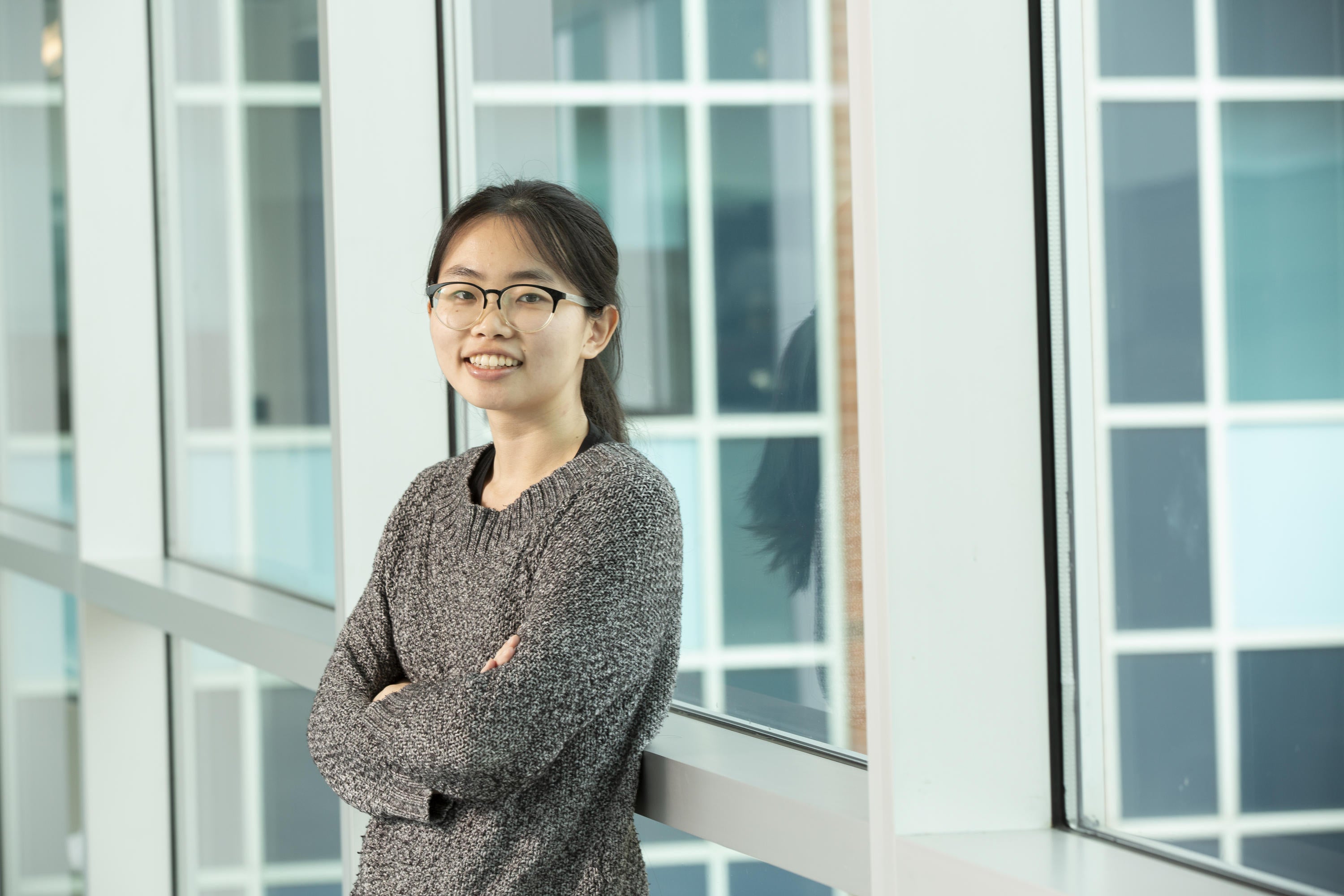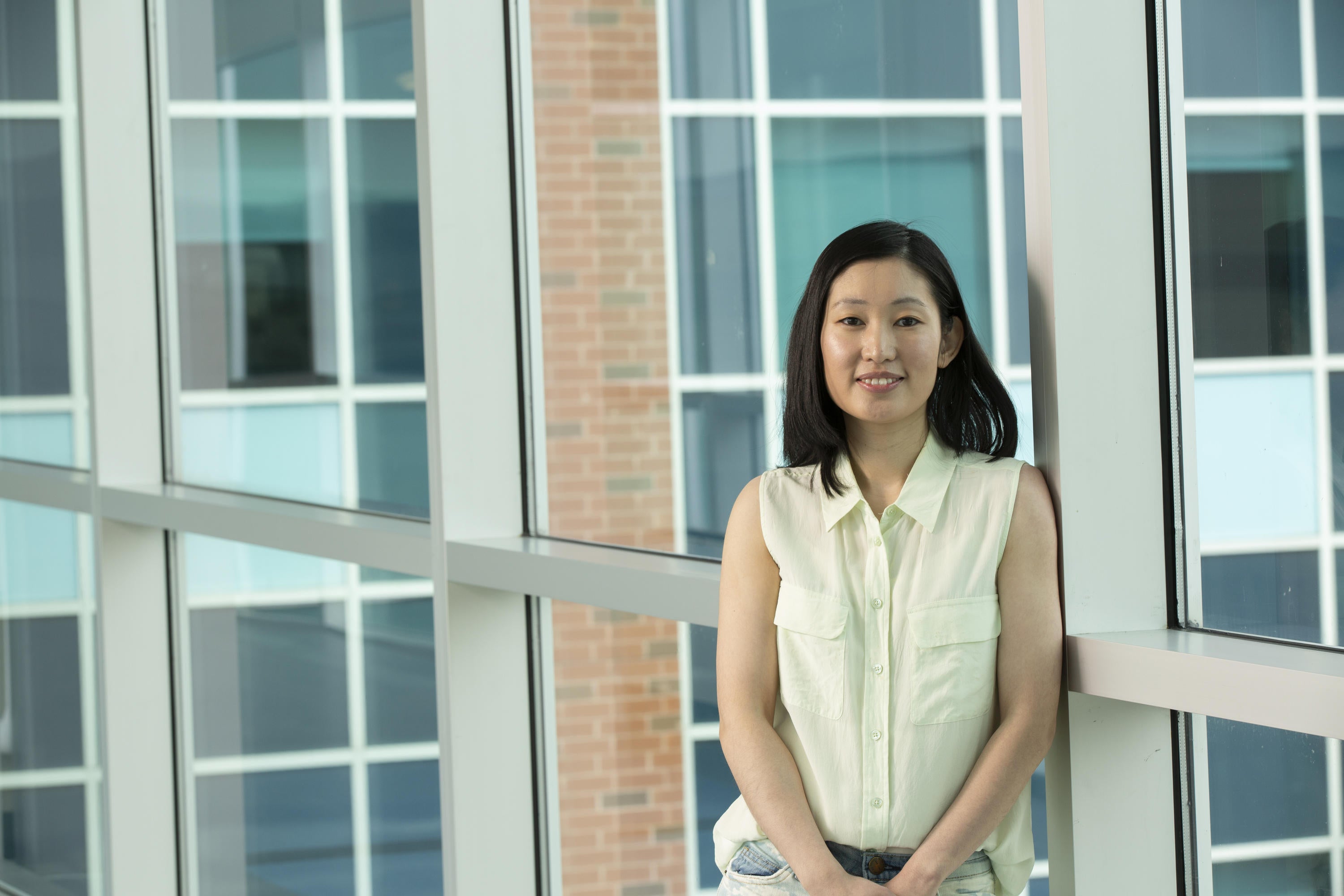Four graduate students were awarded a departmental research presentation award by the Department of Statistics and Actuarial Science, but that's not all they have in common. They all came to Waterloo because they knew of the excellence of the Statistics programs, research, and professors. Their backgrounds vary, as do their research areas, but they have all had a great experience.

After completing her undergraduate degree in Pure Mathematics and Applied Mathematics at the South China University of Technology, Yuliang went on an international exchange. She attended Western University and took some statistic courses.
“When I was at Western, a stats PhD student told me about the University of Waterloo and all of the prestigious professors,” said Yuliang. “Also, it’s a prestigious program, so most Master’s students are expecting good job opportunities if they choose not to do a PhD afterward." Yuliang is one of those students who’s choosing to do a PhD, which she will start in September at the University of Michigan.

“A common application of this could be learning the natural laws of physics. If you’re given data about a physical system, you don’t necessarily need to know the different physical laws, you can uncover the laws by uncovering the data sets only,” explained Maysum. “That’s the problem I was trying to solve.”
Attending high school in Toronto, Maysum always knew that you the place to go for mathematics was the University of Waterloo. He completed his undergraduate degree and Master’s in computational math, where he first learned about machine learning. With a background in computing, his interests in developing algorithms and theoretical proofs led him to his PhD in statistics.

Menglu came to Canada after finishing her undergraduate degree in mathematics at Zhejiang University to complete a Master’s at the University of Alberta. It was there that she started taking statistics courses and decided to complete a PhD in statistics.
“My interest is mainly in mathematical statistics, which deals more with methodology and theory. I think Waterloo has a good selection of classes in those areas, and of course a lot of good researchers, and I’ve learned a lot from them,” noted Menglu. “I decided to come to Waterloo because it was such a celebrated university in this area of research.”

After studying Mathematics and Management (BSc and MSc) at the University of Ulm, Erik completed an MMath here at Waterloo in Statistics. Great friends and supervisors with whom he enjoyed working with, made the decision to complete a PhD program here quite easy. He also enjoys doing the research he cares about and the potential for personal development.
“I have the freedom to broaden my knowledge in other areas and develop other relevant skills, such as programming, presenting research, and teaching classes. As such, I had the great opportunity to present my research at a large conference,” said Erik. “Another good experience was teaching a fourth-year course about quantitative risk management, an area closely related to my research, on my own.”